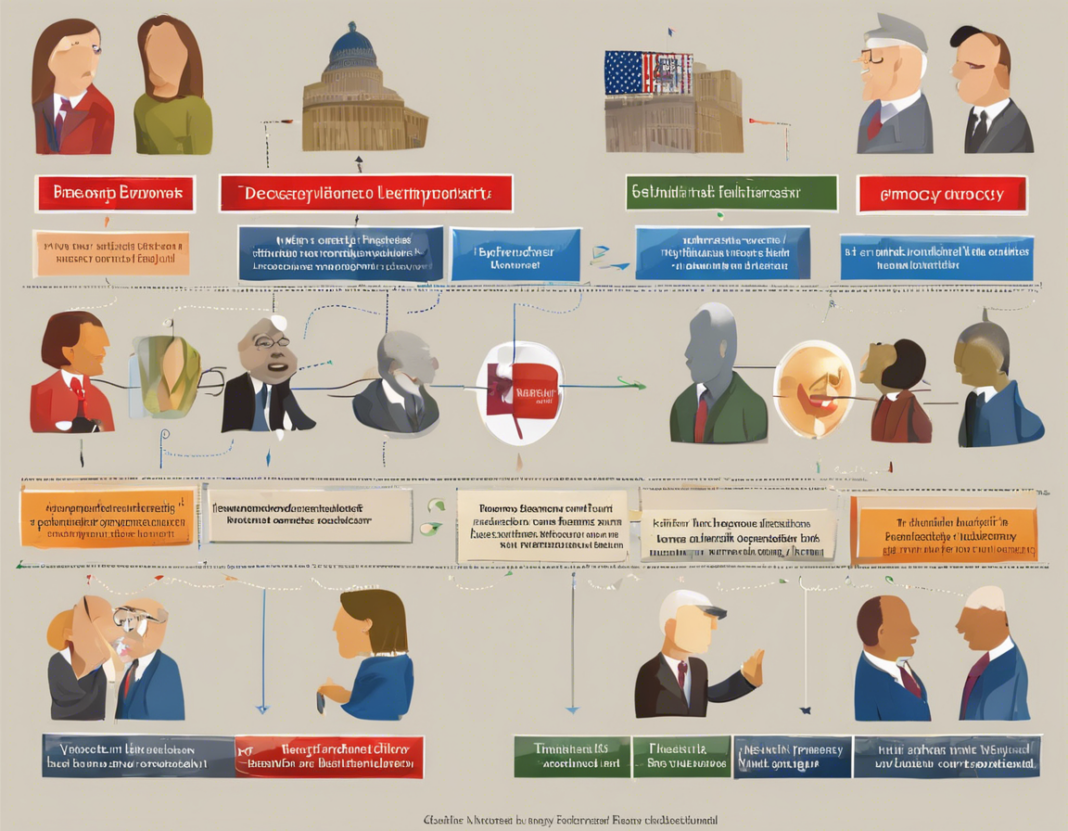In any democratic system, political parties play a crucial role in shaping the political landscape, representing citizens’ interests, and facilitating the functioning of governance. They are the vehicles through which citizens can participate in the political process, influence policies, and elect representatives. This article will delve into the functions and importance of political parties in a democracy.
Functions of Political Parties
1. Representation of Citizens: One of the primary functions of political parties is to represent the interests, concerns, and ideologies of different sections of society. Through their manifestos and policies, parties articulate their stance on various issues and seek to attract voters who align with their vision.
2. Nomination of Candidates: Political parties select and nominate candidates to contest elections at various levels of government. They provide a platform for individuals to enter the political arena and gain support for their ideas and agendas.
3. Formulation of Policies: Political parties develop and promote policies and programs that reflect their values and priorities. When in power, parties use these policies to govern and address the needs of the public.
4. Education and Mobilization: Parties play a role in educating citizens about political issues, mobilizing support for their candidates, and increasing voter turnout during elections. They engage in campaigns and outreach activities to connect with voters and build support for their agenda.
5. Oversight and Accountability: Political parties serve as watchdogs by holding the government accountable for its actions, decisions, and policies. Through mechanisms such as parliamentary debates, questioning, and public scrutiny, parties ensure transparency and good governance.
Importance of Political Parties
1. Pluralism and Diversity: Political parties represent a diverse range of ideologies, opinions, and interests within society. They contribute to pluralism by offering voters a choice of options and fostering healthy competition in the political arena.
2. Stability and Governance: Political parties provide stability to the governmental system by offering continuity in governance. They help maintain order and provide a framework for decision-making and policy implementation.
3. Representation and Participation: Through political parties, citizens can actively participate in the political process, voice their concerns, and contribute to the development of policies that affect their lives. Parties act as the bridge between the government and the people.
4. Conflict Resolution: Political parties serve as mediators and facilitators in resolving conflicts and differences within society. They provide a platform for dialogue, negotiation, and consensus-building on contentious issues.
5. Policy Formulation and Implementation: Political parties are instrumental in developing policies that address social, economic, and developmental challenges. They bring different perspectives to the table and work towards consensus on key issues affecting the country.
Challenges Faced by Political Parties
Despite their critical role in democracy, political parties face several challenges that can hinder their effectiveness and accountability. These challenges include:
1. Corruption: Some political parties are plagued by corruption, nepotism, and unethical practices that erode public trust and legitimacy. Lack of transparency in funding and decision-making processes can undermine the integrity of parties.
2. Factionalism and Infighting: Internal conflicts, power struggles, and factionalism within parties can weaken their cohesion and effectiveness. Infighting can distract parties from their core objectives and hamper their ability to govern efficiently.
3. Lack of Inclusivity: Some parties struggle to be truly inclusive and represent the interests of all segments of society. Marginalized groups, women, and minorities may not have adequate representation within party structures and decision-making processes.
4. Ideological Polarization: Increasing polarization and extremism within political parties can lead to gridlock, divisiveness, and a lack of consensus on critical issues. Parties may become more focused on winning elections than on finding common ground for the greater good.
5. Decline in Trust: Public trust in political parties has been on the decline in many democracies. Scandals, broken promises, and perceived disconnect between parties and the electorate have contributed to a sense of disillusionment and apathy among voters.
FAQs about Political Parties in Democracy
1. What is the role of political parties in a democracy?
Political parties play a crucial role in representing citizens, nominating candidates, formulating policies, educating and mobilizing voters, and ensuring oversight and accountability in government.
2. How do political parties contribute to pluralism in society?
Political parties offer a range of ideologies and options for voters, fostering diversity, competition, and choice in the political landscape.
3. How do political parties address conflicts within society?
Political parties act as mediators in resolving conflicts by providing a platform for dialogue, negotiation, and consensus-building on contentious issues.
4. What challenges do political parties face in contemporary democracies?
Political parties face challenges such as corruption, factionalism, lack of inclusivity, ideological polarization, and decline in public trust, which can impact their effectiveness and legitimacy.
5. How can political parties enhance their accountability and transparency?
Political parties can enhance their accountability and transparency through measures such as disclosing party funding sources, promoting internal democracy, fostering inclusivity, and engaging with citizens through regular communication and outreach efforts.
In conclusion, political parties are vital institutions in a democracy, serving as the connective tissue between citizens and government. By fulfilling their functions effectively and upholding democratic principles, parties can contribute to a vibrant, inclusive, and responsive political system that truly represents the will of the people.

